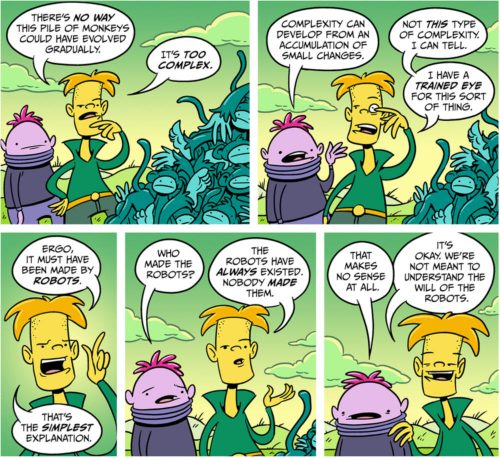I got an email bringing this guy, Owen Benjamin, to my attention and asking if I’d ever heard of him.
No, I had not.
Now I have, and I regret it greatly. He’s a conspiracy theorist who is a fan of Jordan Peterson, thinks we never landed on the moon, that the arguments for a flat earth are reasonable, and that evolution is false. Watch this excerpt in which he brags incessantly about his high IQ, greater than that of any scientist, and then bumbles about claiming that macroevolution couldn’t have happened.
Warning: this video brings on an “expert” to debunk him, and that “expert” is Jean-François Gariépy, a lousy fascist/racist white-ethnostate crusader who doesn’t understand evolution, either. It’s generally a hot mess of ugly.
I had to resocket my jaw after watching that, so I figure it’s only fair that I inflict him on everyone else, too. Jeez, but YouTube is a hothouse for growing the worst people on Earth.





